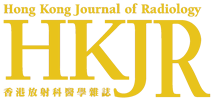Editorial Policies
EDITORIAL POLICIES
Pre-submission inquiries
Pre-submission inquiries are welcomed, for authors who wish to submit a review article. Inquiries should be addressed to the Editor-in-Chief (hkjr@hkam.org.hk).
Peer review process
HKJR operates a double-blind peer-review process.
Authors should not recommend the names of any reviewers but may give the names of people whom they wish to exclude as reviewers at the beginning of the manuscript file.
All submitted manuscripts are initially reviewed internally. Those manuscripts that do not comply with the Information for Authors, or those that are of insufficient priority for publication, are rejected. The remaining manuscripts are assigned to the Editor-in-Chief or an Editor to send for external peer review (except editorials and letters to the Editor which are reviewed internally). Reviewers and Editors (including the Editor-in-Chief) who are authors of the paper, who disclose any other conflicts of interest relating to the study, or who recuse themselves for any other reason are excluded from the review process. Peer review and author identities are kept confidential. Reviewers are invited by emails and submit comments via the HKAMedTrack online submission system. At least two independent reviewers are invited for each manuscript; two to three weeks are usually given.
Manuscripts that require revision are returned to authors, and two to three weeks are usually given for re-submissions; a request for a revision does not indicate that the manuscript will be accepted. When preparing a revision, authors should clearly respond to each point raised by each reviewer, indicating where appropriate changes were made in the manuscript.
When appropriate, a manuscript will be reviewed by the journal’s statistical advisor to specifically appraise the statistical content. HKJR reserves the right to send a paper for further rounds of peer review if necessary.
The final decision rests with the Editor-in-Chief.
Conflicts of interest
HKJR follows the ICMJE definition of conflict of interest. Authors may use the ICMJE Conflict of Interest form when submitting a manuscript.
Authorship
HKJR follows the ICMJE Recommendations for defining authorship, using the following four criteria:
- Substantial contributions to the conception or design of the work; or the acquisition, analysis, or interpretation of data for the work; AND
- Drafting the work or revising it critically for important intellectual content; AND
- Final approval of the version to be published; AND
- Agreement to be accountable for all aspects of the work in ensuring that questions related to the accuracy or integrity of any part of the work are appropriately investigated and resolved.
All individuals meeting these requirements should be credited as authors. Individuals who contributed substantially to the study but do not meet these requirements should be acknowledged.
Ethical policies and procedures
Plagiarism
All manuscripts are assessed for plagiarism using iThenticate (http://www.ithenticate.com/) before being sent for peer review.
Duplicate submission and redundant publication
Duplicate submission is submission of a manuscript to two or more journals simultaneously. Redundant publication is publication of a paper that overlaps substantially with one already published.
Manuscripts are considered on the understanding that they are submitted solely to HKJR and have not been published previously, either in print or electronically, and are not under consideration elsewhere. When submitting a paper, authors should make a full statement to the Editor-in-Chief about all submissions and previous reports that might be regarded as a redundant publication of the same or similar work. If in doubt, submit copies of any material that has been previously published or that is being considered elsewhere at the time of manuscript submission. If redundant publication is attempted without such notification, authors should expect editorial action to be taken; at the least, rejection of the manuscript.
If the journal is made aware of potential duplicate submission or redundant publication, the relevant COPE flowchart is followed for suspected redundant publication in a submitted or published manuscript
Image manipulation and data fabrication
If the journal is made aware of potential image manipulation or data fabrication in any submitted or published articles, the relevant COPE flowchart is followed for suspected fabricated data in a submitted or published manuscript, or suspected image manipulation in a published article.
Appeals
If authors wish to appeal a decision, they should contact the Editorial Office hkjr@hkam.org.hk, stating clearly the reason(s) for appeal and how the manuscript could be revised or clarified to address limitations identified by the editor(s) or reviewer(s).
If the Editorial Board considers that the appeal is with merit, authors will be invited to submit a revised manuscript. Invitation to submit a revised version after appeal is not a guarantee of acceptance. The manuscript will enter a new round of peer review.
Allegations of Misconduct
The Publisher and the HKJR Editorial Board take reasonable steps to identify and prevent the publication of papers where research misconduct has occurred, including plagiarism, citation manipulation, and data falsification/fabrication. In the event that HKJR is made aware of any allegation of research misconduct relating to a published article, the COPE ‘Retraction guidelines’ guide decisions on whether retraction, correction, or other action is appropriate. Allegations of misconduct should be reported to the Editor-in-Chief (hkjr@hkam.org.hk). If the alleged misconduct involves any of the Editors, the Publisher should be contacted (hkampress@hkam.org.hk).

